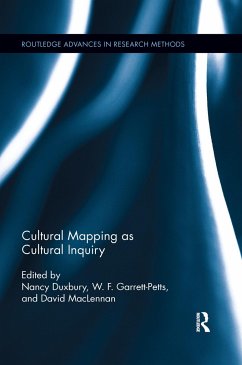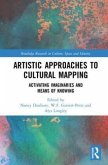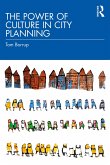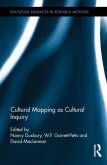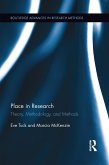This edited collection provides an introduction to the emerging interdisciplinary field of cultural mapping, offering a range of perspectives that are international in scope. Cultural mapping is a mode of inquiry and a methodological tool in urban planning, cultural sustainability, and community development that makes visible the ways local stories, practices, relationships, memories, and rituals constitute places as meaningful locations. The chapters address themes, processes, approaches, and research methodologies drawn from examples in Australia, Canada, Estonia, the United Kingdom, Egypt, Italy, Malaysia, Malta, Palestine, Portugal, Singapore, Sweden, Syria, the United Arab Emirates, the United States, and Ukraine. Contributors explore innovative ways to encourage urban and cultural planning, community development, artistic intervention, and public participation in cultural mapping-recognizing that public involvement and artistic practices introduce a range of challenges spanning various phases of the research process, from the gathering of data, to interpreting data, to presenting "findings" to a broad range of audiences. The book responds to the need for histories and case studies of cultural mapping that are globally distributed and that situate the practice locally, regionally, nationally, and internationally.
'The quality of the writing in an edited volume can vary, but the essays in this collection are consistently good. The editors state that the goal of cultural mapping is to make visible the local stories, rituals, relationships, practices, meanings, and memories that shape the spirit of place. In that way the authors are successful, and academics or cultural workers seeking to gain a deeper understanding of place should find these case studies useful.'- Phil Birge-Liberman, University of Connecticut, Social & Cultural Geography
'Duxbury, Garrett-Petts and MacLennan have edited a volume on the method of cultural mapping which
can be regarded as a central book for cultural policy research.' - Louise Ejgod Hansen, Aarhus University, The Nordic Journal of Cultural Policy
Taken as a whole, Cultural Mapping as Cultural Inquiry explores a variety of mapping practices and logics to inform and inspire cultural planning. Mapping emerges as at once epistemological and deeply ontological, a mode of representation and a set of claims. The contributors take seriously the concern that mapping may reinforce existing power relations and systematic oppression.
Andrew Zitcer (2016) Review of "Cultural Mapping as Cultural Inquiry," edited by Nancy Duxbury, W. F. Garrett-Petts, and David MacLennan, The Journal of Arts Management, Law, and Society, 46:5, 297-299, DOI: 10.1080/10632921.2016.1194795
'Duxbury, Garrett-Petts and MacLennan have edited a volume on the method of cultural mapping which
can be regarded as a central book for cultural policy research.' - Louise Ejgod Hansen, Aarhus University, The Nordic Journal of Cultural Policy
Taken as a whole, Cultural Mapping as Cultural Inquiry explores a variety of mapping practices and logics to inform and inspire cultural planning. Mapping emerges as at once epistemological and deeply ontological, a mode of representation and a set of claims. The contributors take seriously the concern that mapping may reinforce existing power relations and systematic oppression.
Andrew Zitcer (2016) Review of "Cultural Mapping as Cultural Inquiry," edited by Nancy Duxbury, W. F. Garrett-Petts, and David MacLennan, The Journal of Arts Management, Law, and Society, 46:5, 297-299, DOI: 10.1080/10632921.2016.1194795
'The quality of the writing in an edited volume can vary, but the essays in this collection are consistently good. The editors state that the goal of cultural mapping is to make visible the local stories, rituals, relationships, practices, meanings, and memories that shape the spirit of place. In that way the authors are successful, and academics or cultural workers seeking to gain a deeper understanding of place should find these case studies useful.'- Phil Birge-Liberman, University of Connecticut, Social & Cultural Geography
'Duxbury, Garrett-Petts and MacLennan have edited a volume on the method of cultural mapping which
can be regarded as a central book for cultural policy research.' - Louise Ejgod Hansen, Aarhus University, The Nordic Journal of Cultural Policy
Taken as a whole, Cultural Mapping as Cultural Inquiry explores a variety of mapping practices and logics to inform and inspire cultural planning. Mapping emerges as at once epistemological and deeply ontological, a mode of representation and a set of claims. The contributors take seriously the concern that mapping may reinforce existing power relations and systematic oppression.
Andrew Zitcer (2016) Review of "Cultural Mapping as Cultural Inquiry," edited by Nancy Duxbury, W. F. Garrett-Petts, and David MacLennan, The Journal of Arts Management, Law, and Society, 46:5, 297-299, DOI: 10.1080/10632921.2016.1194795
'Duxbury, Garrett-Petts and MacLennan have edited a volume on the method of cultural mapping which
can be regarded as a central book for cultural policy research.' - Louise Ejgod Hansen, Aarhus University, The Nordic Journal of Cultural Policy
Taken as a whole, Cultural Mapping as Cultural Inquiry explores a variety of mapping practices and logics to inform and inspire cultural planning. Mapping emerges as at once epistemological and deeply ontological, a mode of representation and a set of claims. The contributors take seriously the concern that mapping may reinforce existing power relations and systematic oppression.
Andrew Zitcer (2016) Review of "Cultural Mapping as Cultural Inquiry," edited by Nancy Duxbury, W. F. Garrett-Petts, and David MacLennan, The Journal of Arts Management, Law, and Society, 46:5, 297-299, DOI: 10.1080/10632921.2016.1194795

